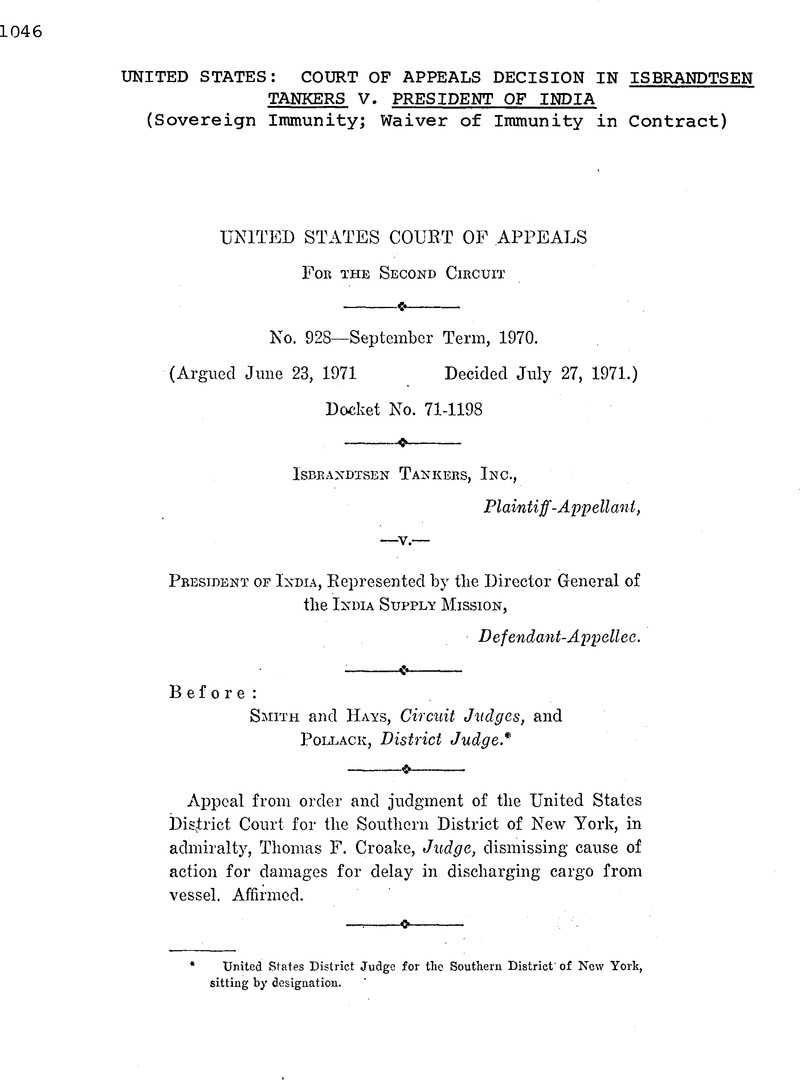No CrossRef data available.
Article contents
United States: Court of Appeals Decision in Isbrandtsen Tankers v. President of India (Sovereign Immunity; Waiver of Immunity in Contract)
Published online by Cambridge University Press: 04 April 2017
Abstract

- Type
- Judicial and Similar Proceedings
- Information
- Copyright
- Copyright © American Society of International Law 1971
References
* United States District Judge for the Southern District’ of New York, sitting by designation.
1 The parties have assumed that the order is appealable under 28 U.S.C. 51292(a)(3) as a decree in admiralty determining rights and liabilities of the parties, even though other claims remain unresolved. We conclude that the appeal will lie. See 9 Moore Federal Practice 2d Ed. H110.19 [3] n. 10; Crews v. The Arundel Corp., 386 F.2d 528 (5 Cir. 1967). But cf. Albatross Shipping Corp. v. Stewart, 326 F.2d 208 (5 Cir. 19.64), The Maria, 67 F.2d 571 (2d Cir. 1933).
2 The transport ships were of the tanker type. By reason of their size they were unable to negotiate the Hooghly River to the port of Calcutta. In accordance with arrangements set forth in the charter parties, these ships transferred their cargoes at a number of “lightening anchorages” off the east coast of India into smaller “lightening vessels,” employed by the shipowners for the purpose of delivering the cargo to Calcutta. Allegedly because of the large number of vessels, these carriers were obliged to wait their turn for a certain period of time in the Bay of t Bengal, before completing the transport up the Hooghly River to Calcutta.
3 Paragraph 34 of the charter party provides:
Any and all differences and disputes arising under this Charter Party are to be determined by the U.S. Courts for the Southern District of New York, but this does not preclude a party from pursuing any in rem proceedings in another jurisdiction or from submission by mutual agreement of any differences or disputes to arbitration.
4 See, e.g., Lauterpacht, “The Problems of Jurisdictional Immunities of Foreign States,” 28 Brit. Y.B. Int’l L. 220, 225-26 (1951); Fitzmaurice, “State Immunity from Proceedings in Foreign Courts,” 14 Brit. Y.B. Int’l L. 101, 123-24 (1933).




